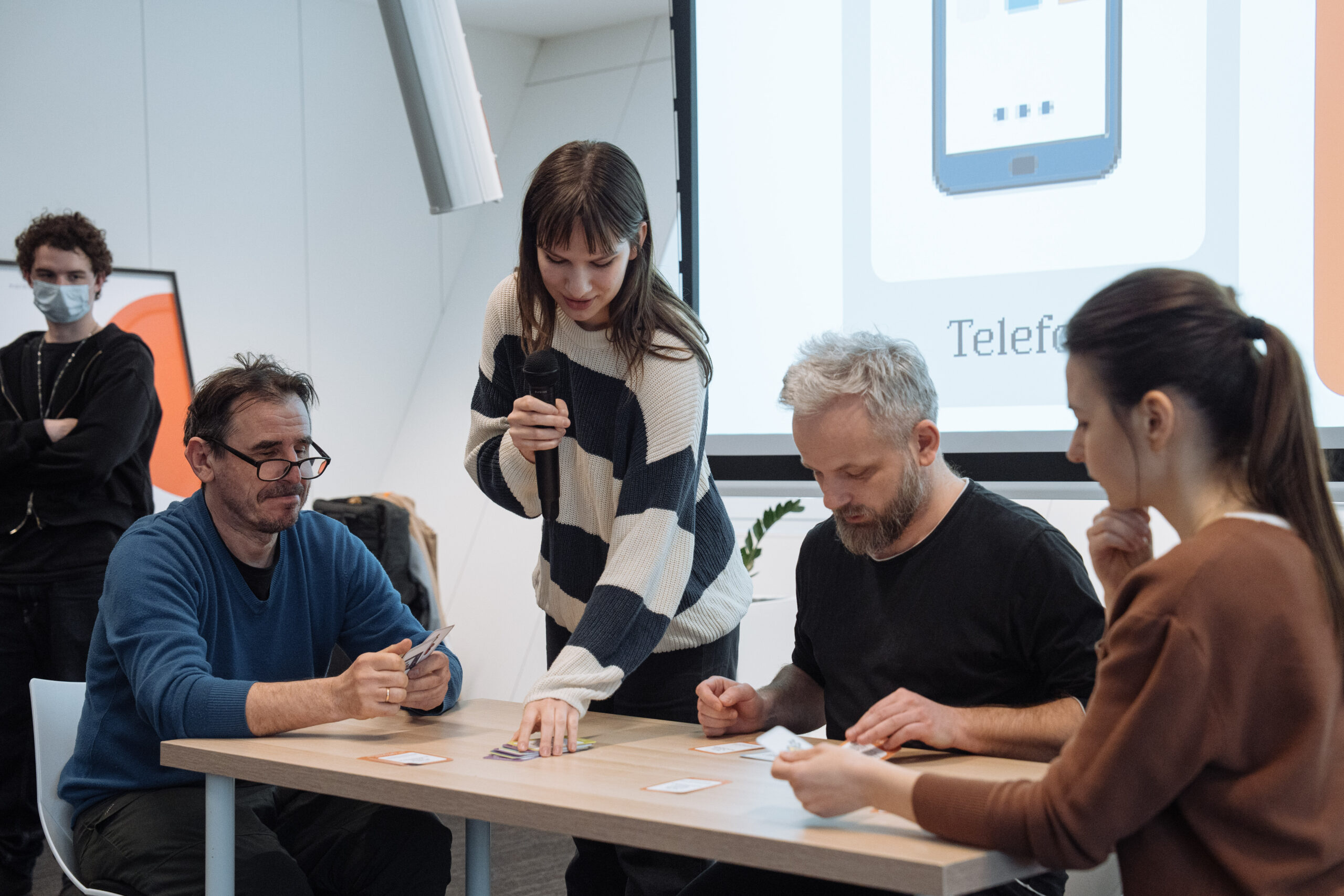From April 7–11, a Design Sprint focused on sustainable design took place at the Faculty of Design at the Academy of Art in Szczecin. Students from three departments – Product Design, Fashion Design, and Visual Communication & UX – worked in interdisciplinary teams on challenges related to sustainability. One of the teams tackled the topic of e-waste.
The workshop was organized by Magdalena Małachowska and Teresa Otulak, who designed both the main theme and the structure of the event. The mentors of the ten teams, selected on the first day of the event, were faculty members from the Faculty of Design.
Five days of intense work. Forty five students. Ten mentors. Ten projects. One in EEE sector.
The introduction to the topic of sustainability was led by Magdalena Małachowska and Teresa Otulak, who gave voice to the Earth:
“I have been stripped of my ability to self-regulate. My rivers have been granted legal personhood, but I have been denied the right to regenerate. I created them from the same elements, yet they still don’t feel we are one. To stop them, I must destroy myself.”
Sustainability is the ability to continue – the ability to carry out actions in a way that does not harm the environment and allows survival over time. It’s development that balances environmental, social, and economic needs. These are complex, multi-disciplinary challenges – wicked problems – that require collaboration, imagination, and engagement from many sides. This is a field that undoubtedly belongs today to the category of big, fat, and ugly.
We now know that designing for the survival of humanity will become a new, necessary field of design. Ecosystems above aesthetics.
E-Waste – The Future Hidden in Cables
In the context of the electrical and electronic sector, according to the In Future Institute, there is an emerging trend of recovering metals from e-waste – from infrastructure or obsolete electronic devices. Is this a response to the raw material crisis? Yes. But also an opportunity for the development of urban self-sufficiency – known as urban mining.
The team, guided by Dr. Olga Kiedrowicz-Świtalska, understood that the issue of e-waste is not only environmental but also legal – a fine for improper disposal of e-waste can be as high as 5000 PLN in Poland. And according to estimates, by 2075, we – humanity may drown in e-waste.
The students took this challenge seriously and pragmatically. They developed an e-guide and map that would help their peers to dispose of unnecessary cables and phones accumulating in drawers. They also designed a card game, which the mentors tested, involving the exchange of devices containing raw materials necessary for producing other items. By returning a phone, one could “discover” materials like lithium that are essential for manufacturing a washing machine.
Barter of raw materials as a form of modern exchange. Brilliant and timely.
The Sprint showed that young designers have the courage and tools to tackle the most challenging issues of today. Their work is not just about projects – it’s about manifestos for the future.
Written by Magdalena Małachowska
Photos: Albert Słowiński
